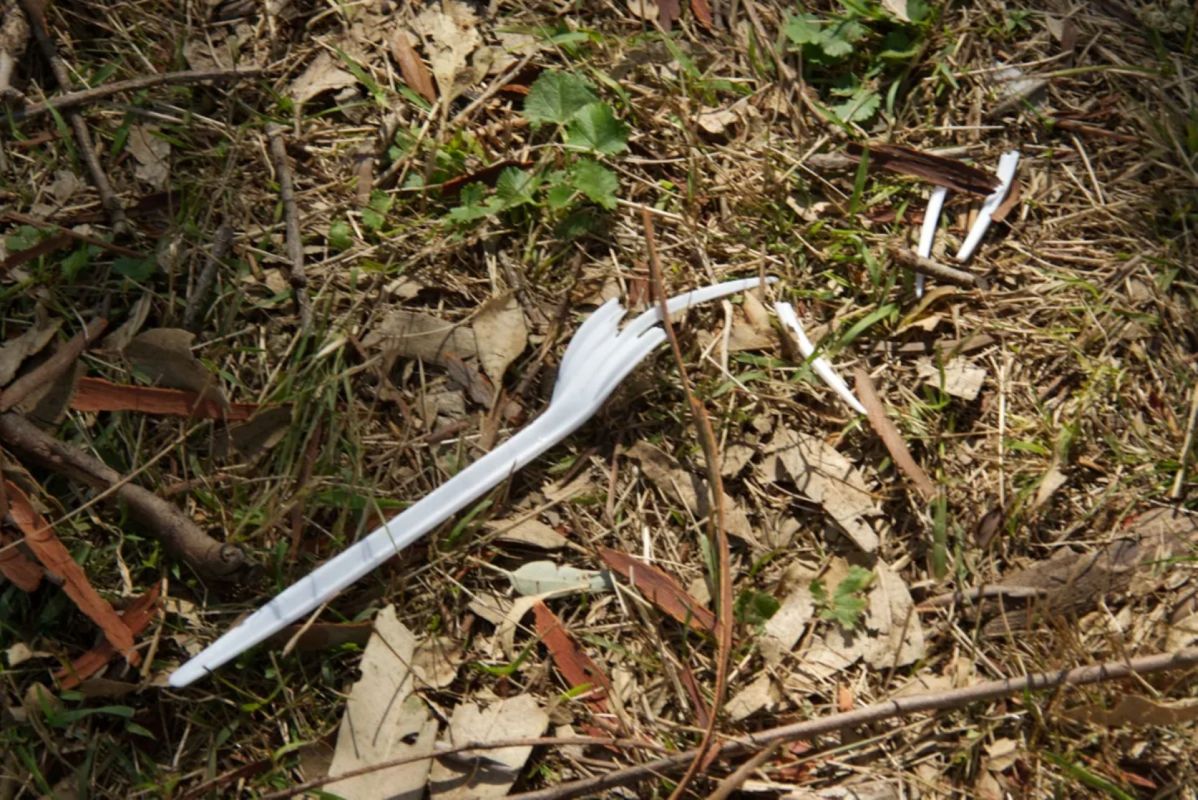It looks like that sustainable fork you just got with your takeout might not be as eco-friendly as you think. A new report revealed that tossed "compostable" and "biodegradable" utensils are persisting in the environment, even after a year.
What happened?
Starting in 2021, the 5 Gyres Institute, which focuses on research questions related to plastic pollution, tested 22 items including pens, thin film, forks, bottles, bottle caps, straws, and bags.
They left them in a number of different environments, including ocean and desert, across Florida, California, and Maine. Then, they monitored how the items broke down over the 64-week study.
The research team included a mix of traditional petroleum-based plastics, bioplastics (those that are produced from renewable biomass sources like vegetable fats, corn starch, sawdust, and recycled food waste), and natural materials like bamboo and paper.
The results? As expected, traditional petroleum-based plastics were persistent in all environments over the course of the study. However, there was a wide range in degradation rates among the bioplastics.
For instance, a straw made from the bioplastic PHA broke down as quickly as bamboo or paper in the ocean. But on land, it didn't start breaking down until the end of the study.
Meanwhile, a PHA bottle broke down slowly on land and in water in all three states but remained almost fully intact over the course of the study in Maine's cooler ocean waters.
Overall, items left on land took longer to break down than those placed in marine environments. Heat also helped with the decomposition process. Thinner items broke down quicker as well.
Why is the study concerning?
The plastics plague is wreaking havoc on the world's ecosystems. Annually, more than 400 million tons of plastic is produced and at least 14 million tons of the stuff ends up in our oceans.
All of this plastic waste endangers and even kills marine wildlife like seabirds, whales, fish, and turtles, who mistake it for food.
This rogue plastic also impacts humans. Microplastics have been found in tap water, beer, and salt. When ingested by people, microplastics can lead to developmental, reproductive, neurological, and immune disorders.
Many companies tout eco-friendly single-use bioplastics as an alternative to traditional plastics, but this study demonstrates that even "environmentally friendly" alternatives can have a lasting impact on the environment.
"Regardless of the material, there's always going to be an environmental cost," Lisa Erdle, director of science and innovation at the 5 Gyres Institute, told The Fast Company.
What can I do to help with plastic waste?
A number of state governments have banned single-use plastic bags, and New Zealand went one step further by becoming the first nation to ban both plastic shopping bags and plastic produce bags.
You can also take matters into your own hands by turning down single-use plastics, whether they are labeled as eco-friendly or not. You can accomplish this by investing in reusable water bottles and eating utensils, canvas shopping bags, and steel straws. This article has some ideas on how you can eliminate plastic waste for a barbeque (and you can carry the ideas into your day-to-day life as well).
If you do purchase bioplastics, design, thickness, and function matter. For instance, plastic wrap can help cheese and meat last longer, preventing food waste, but it will break down faster if it comes in thinner sheets.
The team at 5 Gyres also found that a honeycomb-like pattern of holes integrated into item design could help with the degradation process by allowing microbes easy access to eat away at the material.
Join our free newsletter for weekly updates on the coolest innovations improving our lives and saving our planet.









